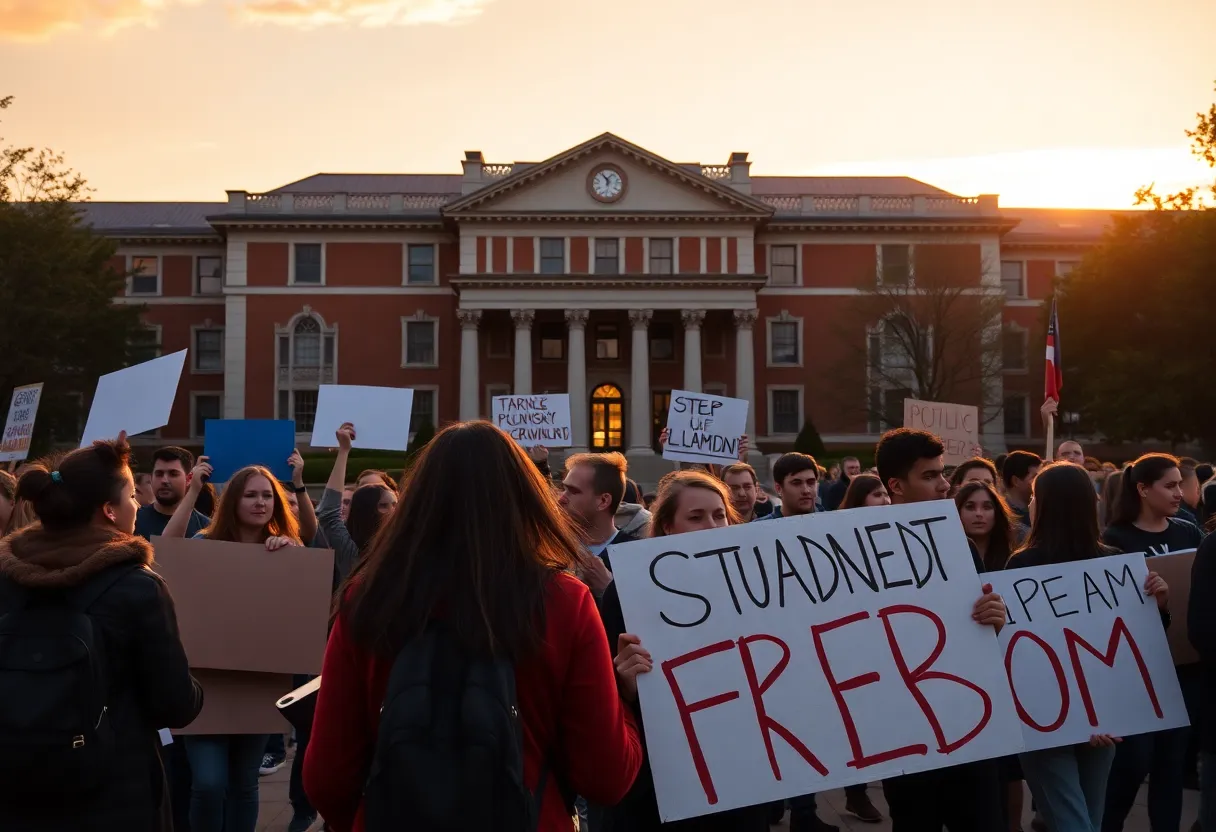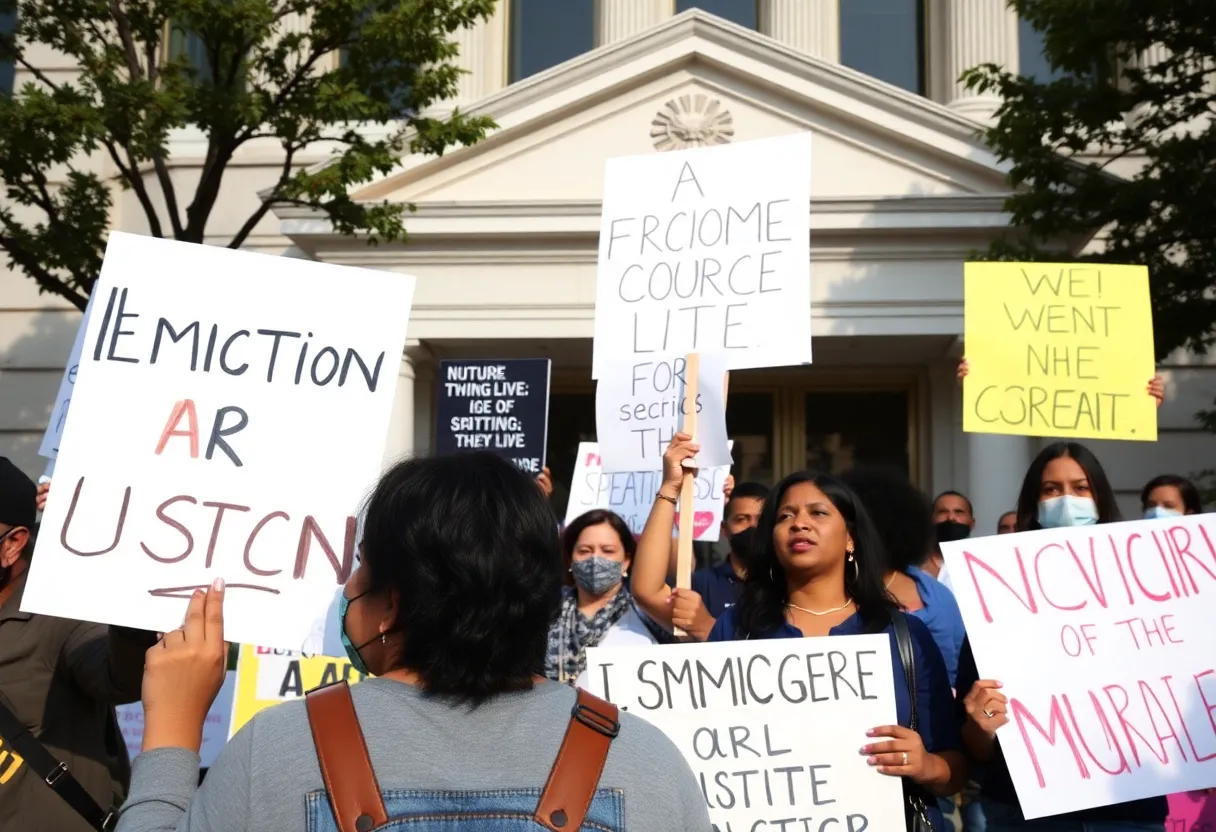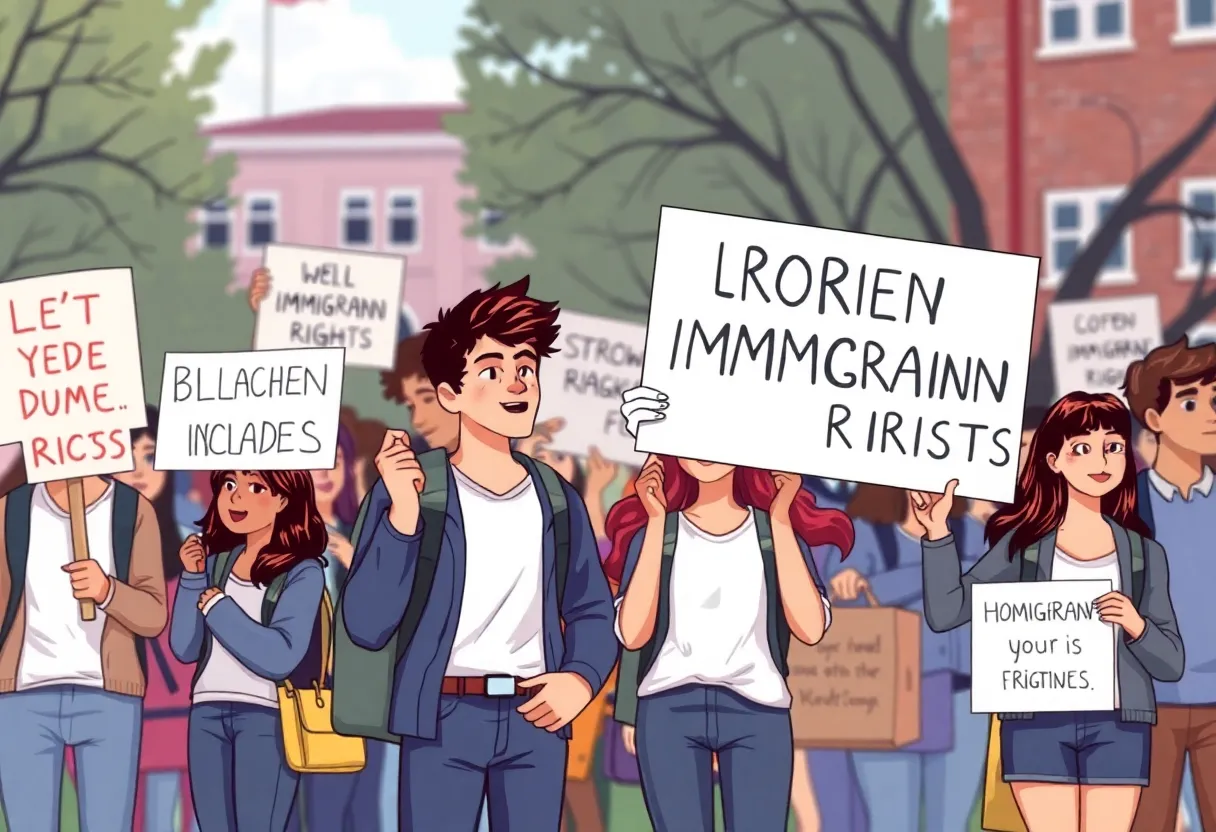News Summary
Harvard University has taken a bold stand against the Trump administration, rejecting demands that threaten academic freedom and governance. The university denounced a $2.3 billion funding freeze and the imposition of conservative perspectives on its operations. President Alan Garber emphasized the significance of academic independence, while faculty members filed a lawsuit to contest the funding cuts. As this confrontation unfolds, implications for students and the future of academic governance are becoming increasingly crucial.
Harvard University Takes Bold Stand Against Trump Administration
In a dramatic move, Harvard University has become the first U.S. university to rebel against demands from the Trump administration. The prestigious institution has decided to stand firm against certain policy requests that aim to alter the very fabric of academic governance. This rebellion comes hand-in-hand with news of a steep $2.3 billion funding freeze initiated by the administration. What led to this unexpected clash, and what does it mean for the future of universities across the country?
A Series of Controversial Demands
The Trump administration’s requests were bold, demanding that Harvard *cede control* to a conservative viewpoint on academia, which many see as an infringement on academic freedom. Specifically, these demands included reporting foreign students for supposed code violations, making significant alterations to governance structures, abolishing diversity, equity, and inclusion (DEI) programs, and reshaping hiring and admissions policies. In simple terms, the government wanted to exert control over how Harvard operates, from student rules to hiring practices. Such demands have raised alarm bells about the potential erosion of academic independence.
Harvard’s Defiant Response
In a public letter, Harvard’s President Alan Garber expressed the university’s rejection of these demands. He described them as an “unprecedented” interference that exceeds federal authority and emphasized that no government should dictate the internal workings of educational institutions. This strong stance showcases Harvard’s commitment to maintaining its *core values*, especially the essence of academic independence that so many believe is vital to a free society.
The Price of Defiance
The $2.3 billion funding freeze isn’t just a number; it symbolizes a larger strategy behind the administration’s actions. This funding suspension is tied to a comprehensive review of *$9 billion in contracts and grants* linked to allegations of anti-Semitism that emerged during pro-Palestinian protests on campus. Other universities, like Columbia University, have seen real financial repercussions for similar situations—having lost around $400 million over claims of anti-Semitic incidents. The financial stakes are undeniably high, but Harvard’s substantial endowment of $53 billion makes it somewhat insulated from the immediate effects of this funding freeze.
Ramifications for Students
As this political drama unfolds, the implications for students are significant. Many foreign students who participated in protests have found themselves ensnared in deportation proceedings, with some facing canceled visas. The broader environment is rapidly evolving, sending waves of anxiety among the student body surrounding their safety and future on campus.
A Willingness to Fight Back
Despite the looming prospect of financial penalties, Harvard leadership has signaled an eagerness to challenge the government legally. Garber publicly reaffirmed the university’s dedication to its independence and constitutional rights. This resilience has bolstered many advocates of academic freedom, who fear that government overreach could stifle important ideological dialogues within universities across the nation.
Legal Challenges Ahead
As the situation escalates, Harvard faculty members have taken action by filing a lawsuit against the Trump administration. Their aim? To block the funding cuts and shield the university from the repercussions of the administration’s demands. The stakes are high, with implications not only for Harvard but potentially for other universities that may find themselves facing similar pressures.
Political Context
The Trump administration justifies its actions by stating that compliance with civil rights laws—including those addressing anti-Semitism—is a requirement for federal funding. They further describe this initiative as a move towards ensuring that *higher education institutions align with* legal standards. However, Harvard’s response marks a potentially pivotal shift in the ongoing conversation about the federal government’s role in university governance.
As events continue to unfold, the eyes of the nation remain locked on this confrontation. Harvard’s brave stand may chart a new course for academic freedom amidst increasing governmental scrutiny—setting the stage for an ongoing battle over the future of higher education in America.
Deeper Dive: News & Info About This Topic
- BBC News
- New York Times
- Al Jazeera
- Bloomberg
- The Guardian
- Wikipedia: Higher Education in the United States
- Google Search: Harvard University Trump demands
- Google Scholar: Harvard University Trump demands
- Encyclopedia Britannica: Higher education
- Google News: Harvard University funding freeze







